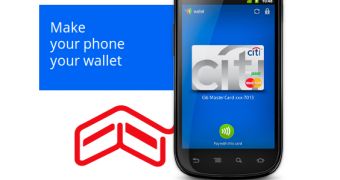Mobile phone carrier Sprint has just announced a partnership with Google aimed at providing customers with the possibility to use their handsets as their mobile wallets through the launch of Google Wallet, an application based on near field communication technology (NFC).
Through Google Wallet, which should be released in summer, users would have the possibility to “tap, pay and save money” while shopping, in a move that would also offer time savings.
With the release of this service, Sprint becomes the first wireless carrier in the United States to enable the mobile payment option to its customers, and Nexus S 4G becomes the first handset to support it.
“We are pleased to join Google in offering this cutting-edge capability that lets you leave the house with just your phone, and tap and pay to shop, dine out and go to the movies,” said Fared Adib, senior vice president of Product for Sprint.
“We are proud that Nexus S 4G is the first smartphone with Google Wallet and pleased that our customers can be the first to experience the service.”
When released, Google Wallet would be supported by the fast growing MasterCardPayPass network, which is already accepted a number of more than 124,000 merchants around the United States.
Citi MasterCard holders would find it easy to add their cards to Google Wallet over the air, the mobile phone carrier notes.
“Google also will support a pre-paid card that can be funded to make payments. In addition to quick payments, users also will be able to redeem offers and even scan loyalty cards – all with a single tap – with participating retailers (with no additional fees added),” the company continues.
The wireless services provider also noted that the release of this application would provide users with enhanced options that best meet their needs, offering them the benefits of a practical, easy-to-use mobile payment solution.
As stated above, the Google Wallet service is not available for the time being, but more on it would become available in the near future. Head over to Google's website here to learn more on it.

 14 DAY TRIAL //
14 DAY TRIAL //